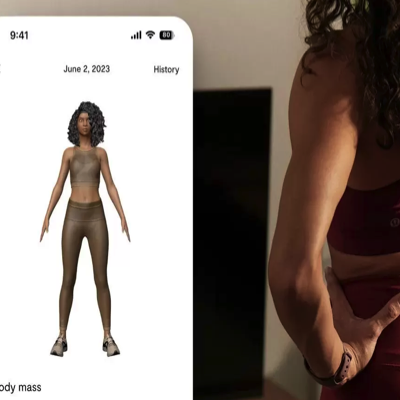Fitness tech company Tempo has released a large update, adding a number of features which leverage the capabilities of both iPhone and AI. Here is what you need to know:
- Sophisticated scanner provides measurements for both body fat percentage and body circumference
- The new services leverage the capabilities of both iPhone and AI and is the first to make this useful
- The main innovation is the new Body Composition Scanner, which uses the depth camera sensors in an iPhone. This makes it more generally available, easier to deploy for fitness groups and less expensive.
Fitness tech company Tempo has released a large update, adding a number of exciting and important features which leverage the capabilities of both iPhone and AI. Smart thinking and great engineering.
Utilising the iPhone’s tech, the Tempo app can now scan the user’s body and provide measurements for both body fat percentage and body circumference.
“The gold standard in body scanning technology is a DXA scan (Dual-energy X-Ray Absorptiometry), which uses low levels of x-rays to measure your body’s make-up.” Tempo says.
But… “A DXA machine costs up to US$80,000, with each scan costing up to $150 and taking up to 30 minutes.”
“Using the depth camera sensors in your iPhone, though, the Body Composition Scanner in the Tempo app provides results within ±5% for body fat percentage when compared to DXA results and ±3.1% for body circumferences. ” Which to be fair for the average gym goer, fitness fanatic or non-elite athlete is plenty accurate enough.
Utilising the data, the Tempo app will be able to recommend the difficulty and intensity level for individual workouts, for example, which weights the user should be using.
Whist this level of innovation is great to see, and making the utility of body scanning more accessible is a great tool, I think they overshoot by then trying to automate coaching. Whilst the, based on data you can start to suggest a bespoke plan, there is more to coaching then the relatively simple arithmetic of taking large datasets and computing a workout. The AI model will have no grasp of the users emotional state at the time of the workout, their work life context, their mood, or indeed some physiological condition that has occurred and is not yet reflected in the data.
I have no doubt that one day AI will be able to replace the Fitness Coach, develop the and coach the perfect workout or performance session and get the absolute best from an athlete or client; both in session and across a training block. But that day is not today.




